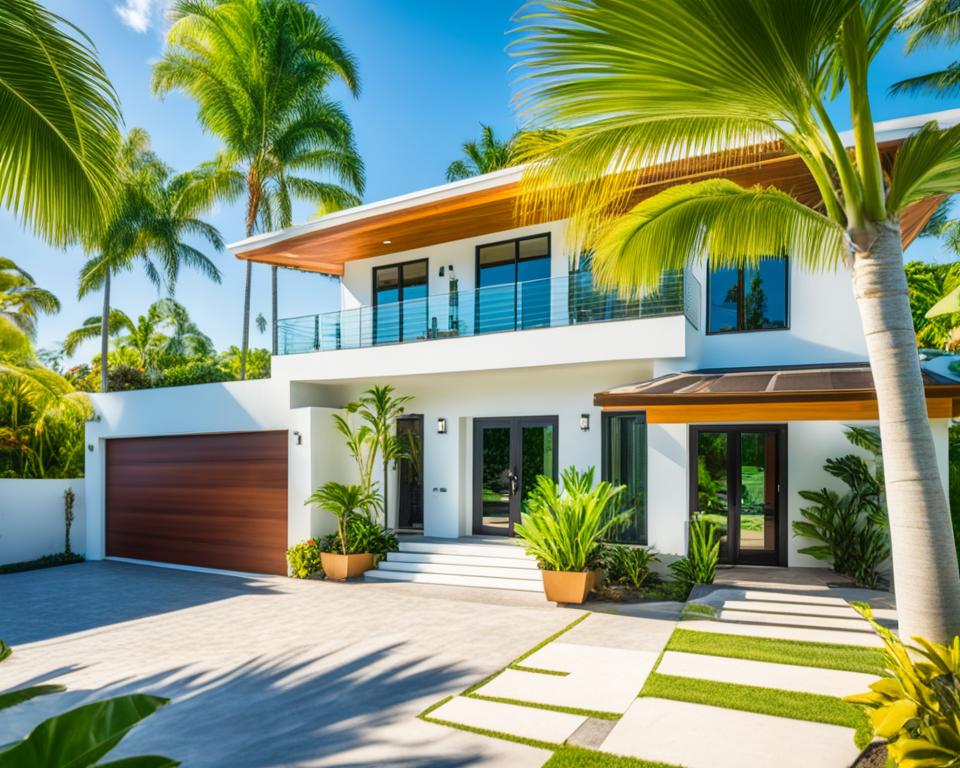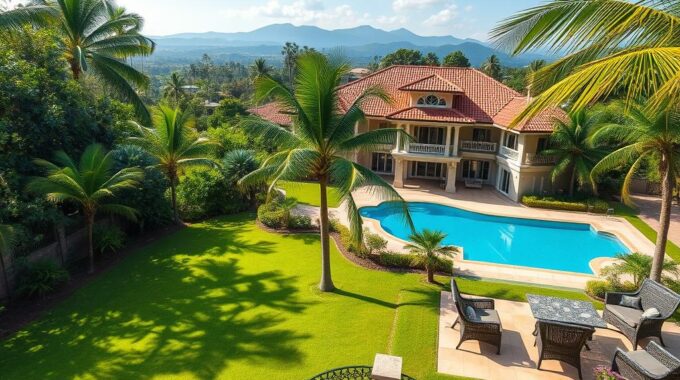Explore repayment terms of bridge loans in Costa Rica with GAP Equity Loans. We provide $50,000 to $1,000,000 loans with 6 months to 3-year terms.

Secure Home Loans in Costa Rica: Expert Guidance With Gapequityloans.com
Finding your way through Costa Rica’s real estate world can be both challenging and rewarding. GAP Equity Loans is your go-to for secure home loans in Costa Rica. They offer expert support for those looking to finance properties. Loan options include low-interest rates, flexible terms, and you can borrow from $50,000.
Are you thinking about debt consolidation or home improvements? GAP Equity Loans can guide you wisely. They make getting a home equity loan in Costa Rica a breeze. This way, homeowners can use their property’s value to achieve financial goals.
Key Takeaways
- GAP Equity Loans provides secure home loans in Costa Rica with competitive interest rates and flexible terms.
- Homeowners can borrow against their property’s equity for debt consolidation or home improvements.
- Expert guidance simplifies the process of obtaining a home equity loan in Costa Rica.
- Loan amounts start at $50,000, making it accessible for a wide range of property owners.
- GAP Equity Loans offers comprehensive services for property financing in Costa Rica.
Unlocking the Financial Potential of Your Property in Costa Rica
In Costa Rica, homeowners can tap into their property’s value through home equity loans. These loans come with lower interest rates, making them a smart choice for cash needs. To get a home equity loan, you usually need 30% to 50% of your property’s value as equity.
Understanding Home Equity Loans in Costa Rica
Several things affect the loan amount and interest rates on a home equity loan. These include creditworthiness, property value, and the terms of the loan. To tackle these issues, working with pros like GAP Equity Loans is wise. They help you maximize your property’s worth.
Key Factors Influencing Home Equity Loan Approval
To be eligible for a home equity loan in Costa Rica, your property’s value and equity must be good. Also, lenders check your credit score and the loan’s details, like the loan-to-value ratio. A good strategy is to work with experts such as GAP Equity Loans. They guide you to the best loan deals available.

Strategic Planning for Costa Rica Home Equity Loan Success
To get great home equity loan rates in Costa Rica, you need a plan. GAP Equity Loans offers loans with interest from 12% to 16% and terms from 6 months to 3 years. To be eligible for a home equity loan here, you must own enough of your property and have good credit.
Finding Competitive Loan Rates and Terms
Finding a loan in Costa Rica can be tricky. But, using GAP Equity Loans might help you. Our team works with many private lenders to get you the best deal on secure home loans in Costa Rica.
Navigating Loan Qualifications and Property Value Assessments
It’s important to know the value of your property for a home equity loan. Our experts help with this step. They make sure your property meets all requirements and its value fits your loan needs.
Managing Repayment: Tips and Common Pitfalls
Managing home equity loan repayments well involves picking the right payment plan. Options include fixed or balloon payments. It also involves budgeting and maybe making extra payments. GAP Equity Loans offers advice to avoid mistakes.
Plan your home equity loan well in Costa Rica to benefit from your property. Whether you want to consolidate debt, improve your home, or pay for a big expense, we can help. Trust our team at GAP Equity Loans to get you the best loan terms.

Secure Home Loans in Costa Rica: Expert Guidance From GAP Equity Loans
GAP Equity Loans helps with home equity loans in Costa Rica. They provide expert advice and solutions for property owners. This includes simplifying the loan process and understanding needs. With their help, you can use your home’s equity for different financial goals.
Working with GAP Equity Loans means a quick loan process, often done in 7-10 days. Traditional banks might take a year. They offer loan amounts from $50,000 to over $1,000,000, based on your property’s equity. You can borrow up to half your home’s value, making financing flexible. Their interest rates, between 12% to 16%, are competitive, too.
To aid borrowers, GAP Equity Loans follows a detailed loan application process. This checks property legality, payment of taxes, and more. All this ensures a smooth lending experience, helping homeowners in Costa Rica use their properties wisely.

Whether you’re a foreign investor, an expat, or a local, GAP Equity Loans is here for you. Their expertise and competitive loan options help you make the most of your Costa Rican property. They support you in achieving financial goals confidently.
Exploring Competitive Rates and Options with Costa Rican Lenders
In Costa Rica, homeowners can find secure home loans with great rates. These loans usually have interest rates from 12% to 16%. They are a good choice for those who want to use their home’s equity.
Comparing Home Equity Loan Offerings
At GAP Equity Loans, we help you look at different home equity loans. We look at things like interest rates, how much equity you need, the length of the loan, and any extra costs. This helps our clients choose what’s best for them and their money.
The Importance of Expert Costa Rica Mortgage Advice
The lending market in Costa Rica can be hard to understand. Getting advice from experts on Costa Rica mortgage options can really help. Our team at GAP Equity Loans knows a lot about the industry. We help people get through the home equity loan process easily and successfully.
Choosing a trusted company like GAP Equity Loans helps you see all your home equity loan choices. This allows you to make smart choices that benefit your property’s value.
Conclusion
Home equity loans in Costa Rica give homeowners a great chance. It’s perfect for funding home upgrades or paying off debts. Thanks to home equity loans, you can make your property investments work harder.
GAP Equity Loans is a name you can trust. They help people in Costa Rica with mortgages. Working with them means getting good loans and solid advice. Anyone looking for Costa Rica real estate loans should check out what they offer.
Call To See If You Qualify For a Loan Today
Do you need a loan to spruce up your home or clear debts? Check out home equity loans in Costa Rica with GAP Equity Loans. Their experts are here to help you make the most of your property.
FAQ
What types of home loans are available for property owners in Costa Rica?
Home equity loans are a great choice for property owners in Costa Rica. They let you borrow money using your property’s equity. Interest rates are often low, around 12% to 16%.
What are the key factors that influence the approval of a home equity loan in Costa Rica?
Getting a home equity loan in Costa Rica depends on a few things. Your credit, the value of your property, and how much equity you have matter. Your loan’s terms and conditions are also very important.
How can homeowners in Costa Rica strategically plan to secure the best home equity loan rates and terms?
To get a good home equity loan in Costa Rica, smart planning is key. Compare different loans. Know what the lenders are looking for. Make sure your property’s value is accurate. Decide on repayment options like fixed payments or balloon payments.
Why is it important to work with a trusted provider like GAP Equity Loans for home equity loans in Costa Rica?
A trusted lender like GAP Equity Loans can make getting a loan easier. They offer helpful advice and competitive loan options. Their expertise in Costa Rica’s market helps you get the most out of your property’s value.
What should Costa Rican homeowners consider when comparing home equity loan options and seeking expert mortgage advice?
Choosing the right home equity loan in Costa Rica means looking at all the details. Important factors include interest rates, how much equity you need, and the loan’s terms. It’s crucial to get advice from Costa Rica mortgage experts. They can help you find the best loan for your situation.
Source Links
- https://www.gapequityloans.com/en/costa-rica-home-equity-loan-guidance/
- https://www.gapequityloans.com/en/costa-rica-home-equity-loan-optimization/
- https://gapinvestments.com/en/real-estate-lenders-in-costa-rica/
- https://gap.cr/costa-rica-equity-loan-services/
- https://gapinvestments.com/en/costa-rica-property-financing/
- https://www.gapequityloans.com/en/commercial-loans/
- https://www.gapequityloans.com/en/construction-loans/
- https://gapinvestments.com/en/can-private-lenders-make-money-financing-homes-in-costa-rica/
- https://www.gapequityloans.com/en/home-equity-loan-planning-costa-rica/
- https://www.gapequityloans.com/en/costa-rica-home-equity-loans/
- https://gapinvestments.com/en/mortgage-solutions-in-costa-rica/
- https://gapinvestments.com/en/costa-rica-real-estate-financing-expertise/
- https://gapinvestments.com/en/secure-loans-in-costa-rica/
- https://www.gapequityloans.com/en/costa-rica-home-equity-loans-guide/
- https://www.gapequityloans.com/en/equity-loans-faq/
- https://www.gapequityloans.com/en/discover-home-loans-in-costa-rica/
- https://www.gapequityloans.com/en/loan-application-costa-rica/
- https://crie.cr/mortgages-in-costa-rica/
Article by Glenn Tellier (Founder of CRIE and Grupo Gap)



